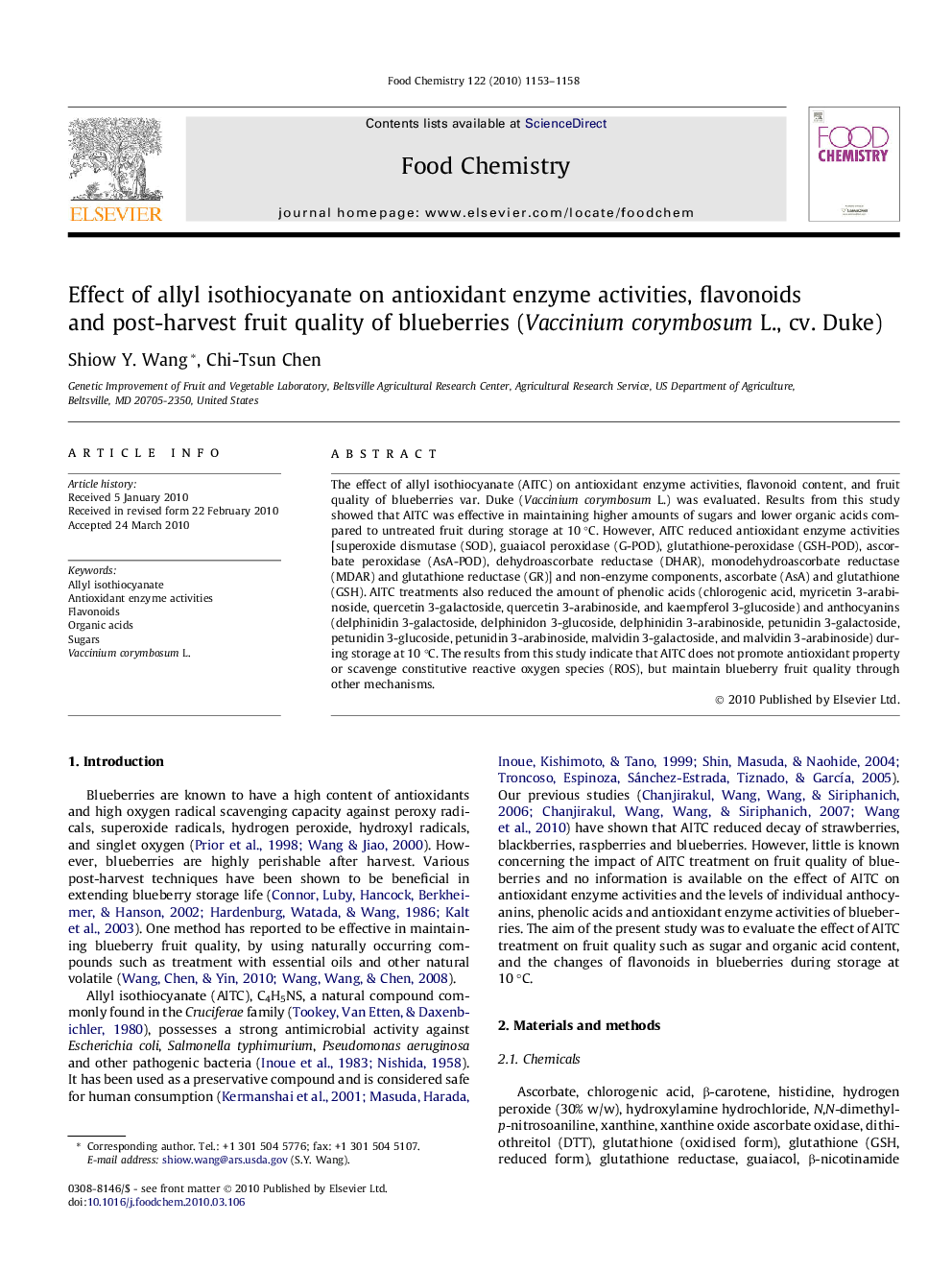| Article ID | Journal | Published Year | Pages | File Type |
|---|---|---|---|---|
| 1185155 | Food Chemistry | 2010 | 6 Pages |
The effect of allyl isothiocyanate (AITC) on antioxidant enzyme activities, flavonoid content, and fruit quality of blueberries var. Duke (Vaccinium corymbosum L.) was evaluated. Results from this study showed that AITC was effective in maintaining higher amounts of sugars and lower organic acids compared to untreated fruit during storage at 10 °C. However, AITC reduced antioxidant enzyme activities [superoxide dismutase (SOD), guaiacol peroxidase (G-POD), glutathione-peroxidase (GSH-POD), ascorbate peroxidase (AsA-POD), dehydroascorbate reductase (DHAR), monodehydroascorbate reductase (MDAR) and glutathione reductase (GR)] and non-enzyme components, ascorbate (AsA) and glutathione (GSH). AITC treatments also reduced the amount of phenolic acids (chlorogenic acid, myricetin 3-arabinoside, quercetin 3-galactoside, quercetin 3-arabinoside, and kaempferol 3-glucoside) and anthocyanins (delphinidin 3-galactoside, delphinidon 3-glucoside, delphinidin 3-arabinoside, petunidin 3-galactoside, petunidin 3-glucoside, petunidin 3-arabinoside, malvidin 3-galactoside, and malvidin 3-arabinoside) during storage at 10 °C. The results from this study indicate that AITC does not promote antioxidant property or scavenge constitutive reactive oxygen species (ROS), but maintain blueberry fruit quality through other mechanisms.
